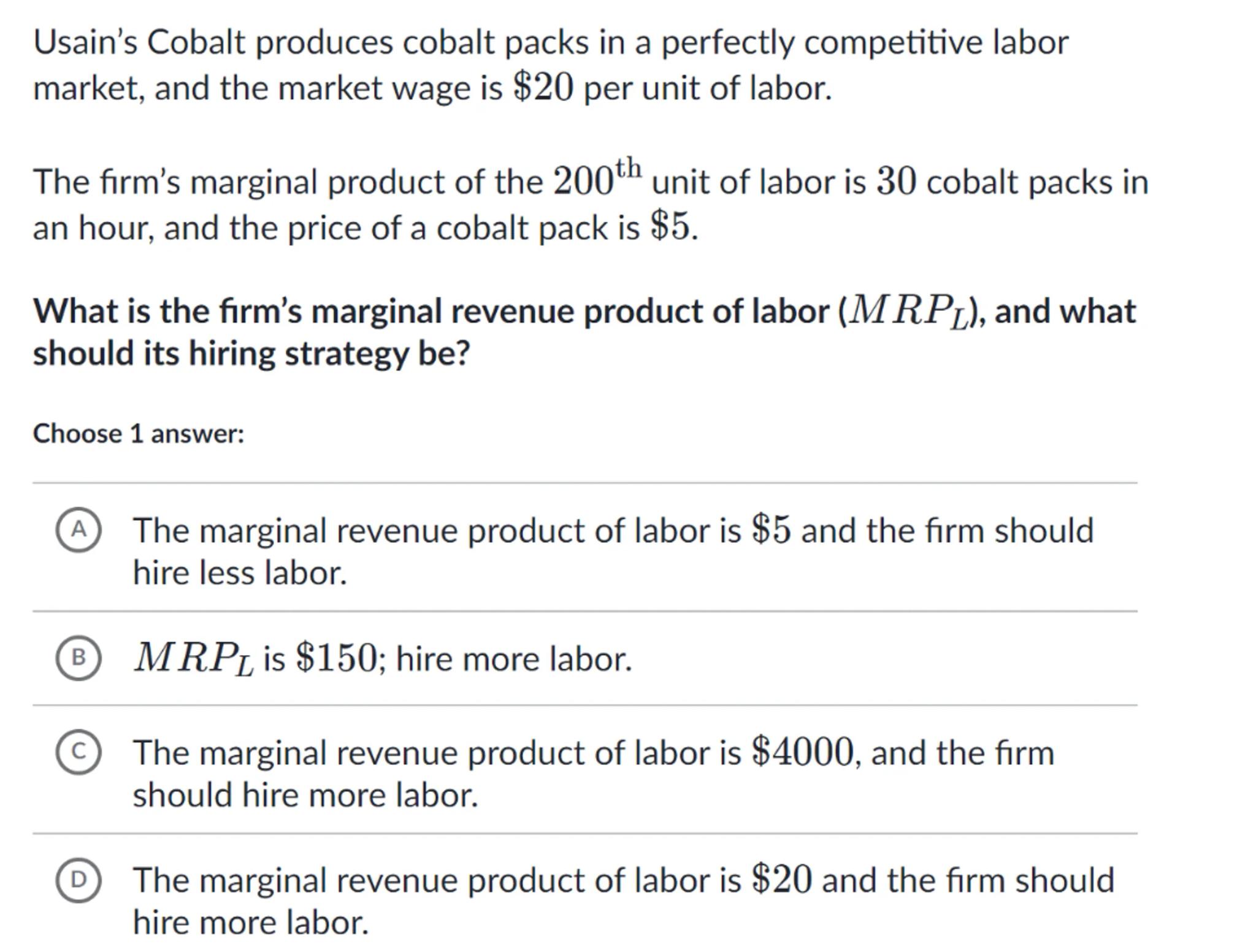
Sia

Question
Macroeconomics
Posted almost 2 years ago
Usain's Cobalt produces cobalt packs in a perfectly competitive labor market, and the market wage is per unit of labor.
The firm's marginal product of the unit of labor is 30 cobalt packs in an hour, and the price of a cobalt pack is .
What is the firm's marginal revenue product of labor , and what should its hiring strategy be?
Choose 1 answer:
(A) The marginal revenue product of labor is and the firm should hire less labor.
(B) is ; hire more labor.
(C) The marginal revenue product of labor is , and the firm should hire more labor.
(D) The marginal revenue product of labor is and the firm should hire more labor.

Answer from Sia
Posted almost 2 years ago
Solution
a
Calculation of Marginal Revenue Product of Labor (MRPL): The MRPL is calculated as the marginal product of labor (MPL) multiplied by the price of the output (P). In this case, MPL is 30 cobalt packs per hour and P is $5 per cobalt pack. Therefore, MRPL = MPL × P
b
Numerical Calculation: MRPL = 30 cobalt packs/hour × 150/hour
c
Hiring Strategy: The firm should hire more labor if the MRPL is greater than the market wage. Since the market wage is 150, the firm should hire more labor because MRPL > Wage
Answer
(B) MRPL is $150; hire more labor.
Key Concept
Marginal Revenue Product of Labor (MRPL)
Explanation
MRPL is the additional revenue a firm earns from hiring one more unit of labor, and it guides the firm's hiring strategy in a perfectly competitive labor market. If MRPL exceeds the market wage, the firm can increase profits by hiring more labor.
Not the question you are looking for? Ask here!
Enter question by text
Enter question by image
Unlock Smarter Learning with AskSia Super!
Join Super, our all-in-one AI solution that can greatly improve your learning efficiency.
30% higher accuracy than GPT-4o
Entire learning journey support
The most student-friendly features
Study Other Question